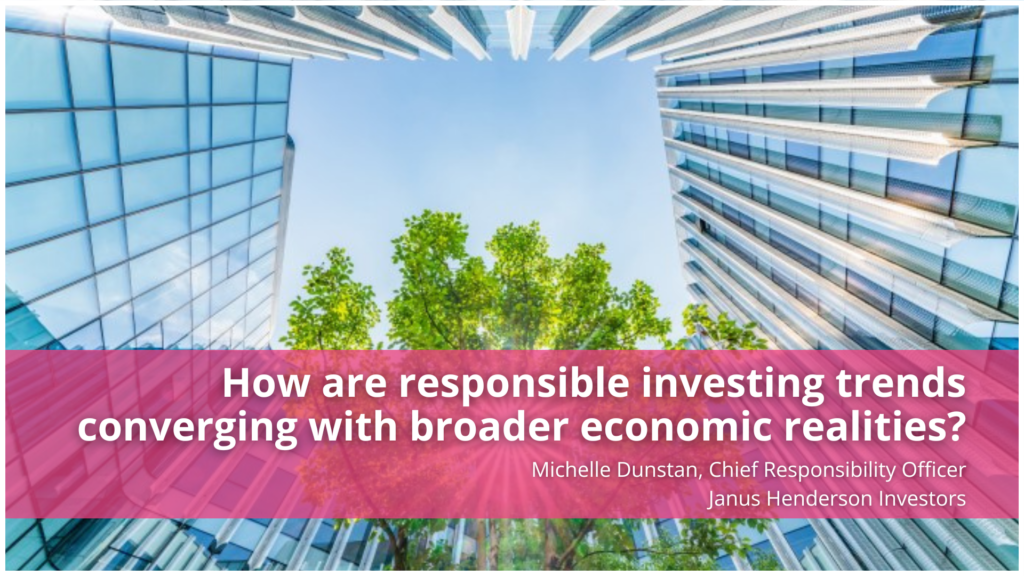Is greenhushing the new greenwashing?
Harriet O’Brien, ESG Consultant, Danesmead ESG

Note: The views expressed on these pages are the opinions of their respective author(s) only and do not necessarily reflect the views and opinions of UKSIF.
This website should not be taken as financial or investment advice or seen as an endorsement or recommendation of any particular company, investment or individual. While we have sought to ensure information on this site is correct, we do not accept liability for any errors.
Is greenhushing the new greenwashing?
Harriet O’Brien, ESG Consultant, Danesmead ESG
Greenhushing is the practice of staying quiet about your climate or ESG ambitions and initiatives to avoid scrutiny and negative attention. Also known as “strategic silence”.
Unlike greenwashing, in which companies deliberately exaggerate or misrepresent their environmental activities, with greenhushing, companies actively downplay their actions.
Greenhushing appears to be on the rise, amongst both corporates and investors. A recent survey by consultancy firm South Pole found that 70% of listed companies (of the 1,400 surveyed) were engaging in greenhushing. It also found that companies with the greenest credentials including those in the environmental services industry (e.g. clean energy and recycling companies) tended to be the most likely to greenhush.
So why are companies and investors greenhushing?
Amongst corporates, arguments vary across regions and sectors but seemingly many fear scrutiny. This could be from customers or the media, but also from investors, many of whom will also be under pressure to comply with increasingly strict regulatory requirements like the FCA’s new anti-greenwashing rule.
Some claim to be confused about how and what information to communicate, due to a lack of appropriate guidance. For fear of being caught out in a misstatement i.e. greenwashing, many companies are erring on the side of caution and opting to say little or nothing on sustainability.
Investors are also engaging in greenhushing. Some are doing so to avoid falling foul of new and more rigorous rules on what can and can’t be classified as sustainable i.e. removing words like sustainable from fund names to align with SFDR and SDR definitions and naming and marketing rules. According to data by consultancy Broadridge, in the first half of 2023, 44 sustainable funds removed “sustainable” from their name, while in 2022, 99 funds added “sustainable” to their name.
Other investors are responding to the mostly US-based ESG backlash by removing references to ESG and related terminology from their reports and websites. It’s worth noting that many such firms are continuing with the ESG work, but doing it more quietly.
On the other hand, it’s possible this apparent rise in greenhushing is actually a correction of prior greenwashing; increased scrutiny causing companies and investors to reassess the accuracy of their claims and evidence (or lack of it) to support them.
Withdrawing false or inflated information from the public domain to more accurately represent the action being undertaken is clearly a positive but saying little or nothing because the data is incomplete or regulations are not well understood could also have its issues.
Why does it matter?
Communicating climate action creates positive momentum and competition amongst companies – effectively a race to the top, or at least a way of pushing companies to keep up with the majority. By downplaying their actions, companies lower the bar on climate ambition causing momentum to dwindle and ultimately progress on delivering action to waiver.
Added to that, by staying quiet companies miss out on the opportunity to engage their customers and stakeholders and develop their brand’s narrative and reputation. With less data available, it’s also much harder for companies and investors to monitor and benchmark progress, and thus accountability is lost. And let’s not forget that companies with poor sustainability credentials can struggle to hire individuals from more purpose-driven younger generations.
How will this play out?
Companies are already starting to show maturity in how they both act on and communicate climate action. More companies than ever are now substantiating their net zero targets with detailed action plans and credible independent verifiers like SBTi. Even EasyJet has ditched its questionable offsetting programme in favour of a more progressive and impactful emissions reduction plan. The quality and ambition of these targets may still not be perfect, but they are improving, creating positive momentum and a more reliable supply of data.
Regulation also has a part to play, in Europe, where standards and regulations like SFDR, CSRD, the Green Claims Directive, and the FCA’s anti-greenwashing rule are putting increasing pressure on companies and investors to be clear and honest in their claims about sustainability. As these frameworks take effect and everyone gets better at making transparent sustainability disclosures and assessing potential weaknesses, greenwashing should become harder to hide. Similarly, as greater volumes of more reliable and consistent data become available via mandatory public disclosure requirements, greenhushing should also dissipate.
Of course, this will take time and let’s face it, it’s never that simple. In the meantime, companies and investors should try to be transparent about what they are doing as well as the challenges they face. The most credible amongst them will be the ones who acknowledge the obstacles they face whilst setting clear and ambitious goals and progressing towards them.
With CSRD looming (and due to oblige around 50,000 companies to conduct fairly intense sustainability reporting over the next 5 years) companies also need to prepare themselves for a whole new world of disclosure.
While it may seem tempting to stay quiet on sustainability, we believe the benefits of telling your story and owning your narrative outweigh the potential challenges overall. Customers, regulators, investors and every other stakeholder wants to see progress not perfection so whether its compliance or reputation you’re seeking, transparency is the best way to go.


